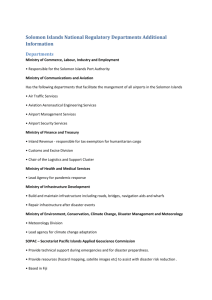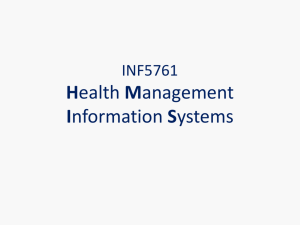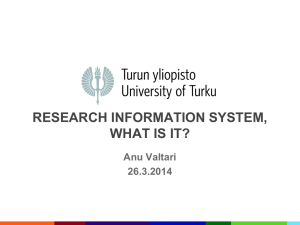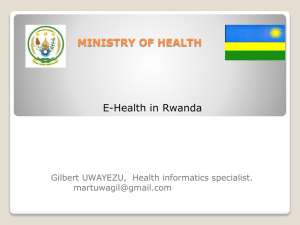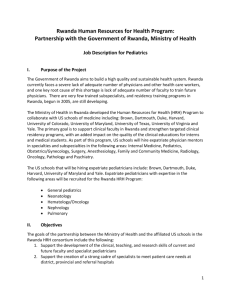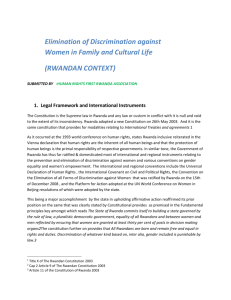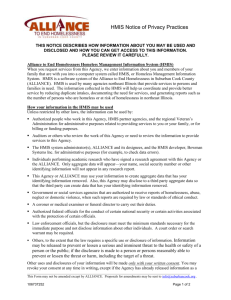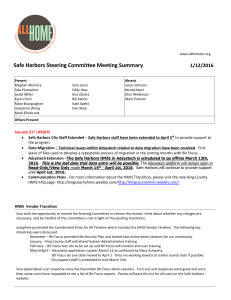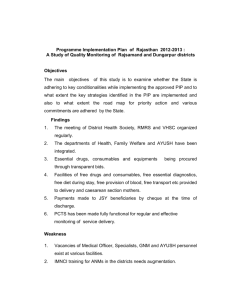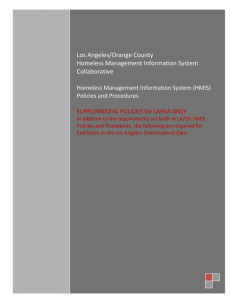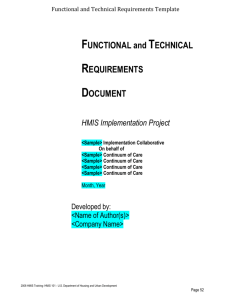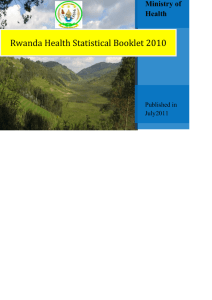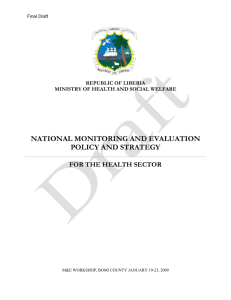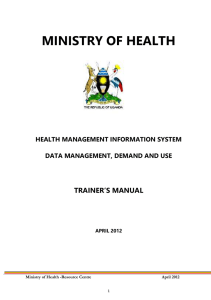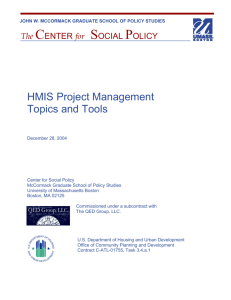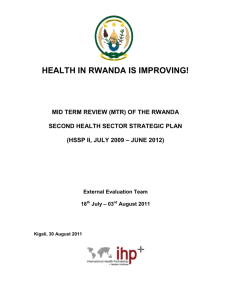Requests for data - Ministry of Health
advertisement
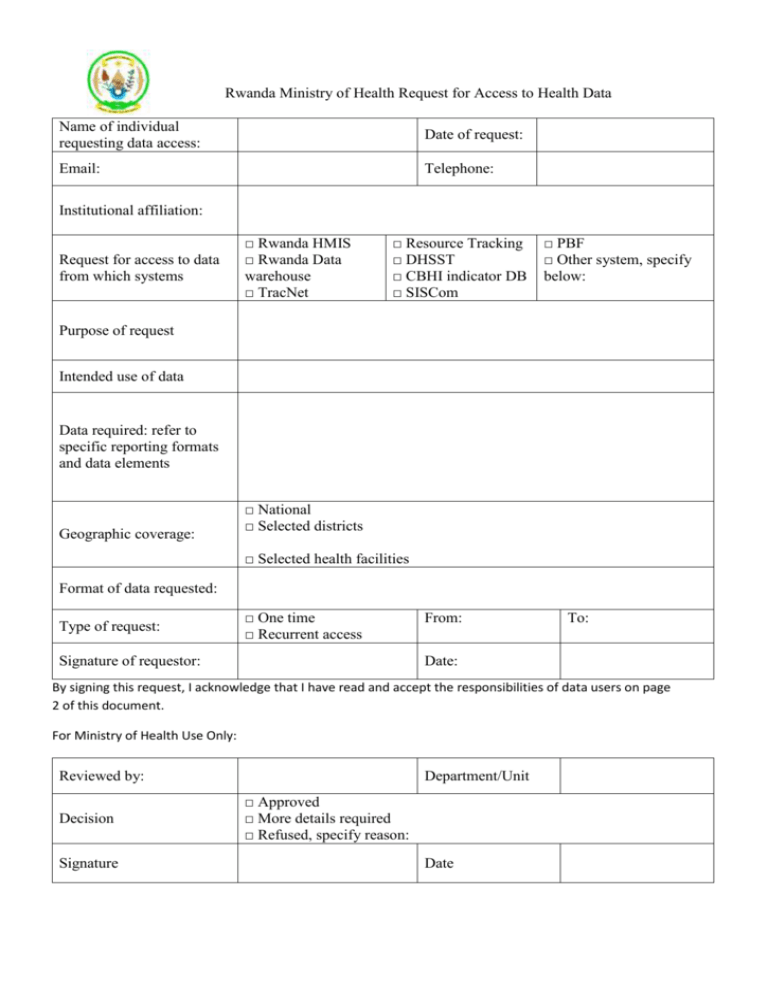
Rwanda Ministry of Health Request for Access to Health Data Name of individual requesting data access: Date of request: Email: Telephone: Institutional affiliation: Request for access to data from which systems □ Rwanda HMIS □ Rwanda Data warehouse □ TracNet □ Resource Tracking □ DHSST □ CBHI indicator DB □ SISCom □ PBF □ Other system, specify below: Purpose of request Intended use of data Data required: refer to specific reporting formats and data elements Geographic coverage: □ National □ Selected districts □ Selected health facilities Format of data requested: Type of request: □ One time □ Recurrent access Signature of requestor: From: To: Date: By signing this request, I acknowledge that I have read and accept the responsibilities of data users on page 2 of this document. For Ministry of Health Use Only: Reviewed by: Decision Signature Department/Unit □ Approved □ More details required □ Refused, specify reason: Date Requests for data: Aside from data that are classified as public, requests for data from non-Government of Rwanda staff or departments must be addressed to the HMIS department who will process the request with the relevant Ministry departments as identified in the table above. The request must identify the specific purpose for which it will be used, who will use the data and describe the data sets required. These requests should be made using the attached word template by email at least 48 hours before the data are required to allow time for review and preparation of the data set. Individual requests will be logged by the HMIS department. Requests can be for one-time access or for a recurrent request (i.e. monthly or quarterly updates of the same data or application). Requests for data from multiple data sources are to be coordinated by the HMIS department. Requests are for the specific purpose and individuals or departments that requested the data. Non-public data may not be passed on to third parties without prior approval. Such requests for data do not replace the requirement of seeking ethics committee approval for human subject research (policy and procedures covered in the Health Sector Research Policy). Responsibilities of data users: Access to classified health information comes with certain responsibilities and obligations for end users. In particular these are to avoid misuse of data and the publication of biased or misleading analyses. More details are available in the Ministry of Health’s Health Sector Data Sharing and Confidentiality Policy, available on the MOH web site (moh.gov.rw) Identifying and reporting data quality issues: While all ministry departments seek to ensure the high quality of routinely collected health data, in the course of detailed secondary analysis it is likely that users will note anomalies due to missing data or errors of data transcription and data entry. Data users are required to report such issues to the department responsible for the specific data source so that appropriate action can be taken to correct errors before publishing analyses that might be influenced by these issues. Ensuring data security and integrity: Authorized users become the custodians of the data that they are given to use, they must ensure that the data are not shared with others who are not included in the data access agreement. They must also ensure that the integrity of the data is maintained while it is in their possession. Database access credentials of authorized users should never be shared Publication: copies of publications based primarily on analysis of specific health data sets must be shared with the responsible departments to form part of the knowledge base. They should be emailed to the HMIS department and uploaded to the MOH web site. In exceptional cases, the Ministry of Health reserves the right to require prior review of documents prior to publication. The major concern with the publication of data is the ability to ensure the quality and accuracy of the data to be used. Bad data can lead to bad decisions, or can unduly harm the reputation of an organization, district or even a country. Sanctions: Failure to comply with the Health Sector Information policies may result in sanctions relating to the individual or organization’s use of health sector information (such as suspension or termination of access, or refusal of research collaboration or publication, or removal of online material); to the individual's employment (up to and including immediate termination of employment); civil or criminal liability as defined in Rwanda’s law on access to information; or any combination of these.

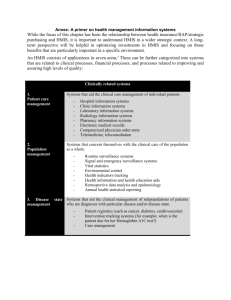

![Government of [Rwanda] - UNDP-UNEP Poverty](http://s2.studylib.net/store/data/005359438_1-2c42f5844b4637cd375e392bd4b49b8d-300x300.png)


